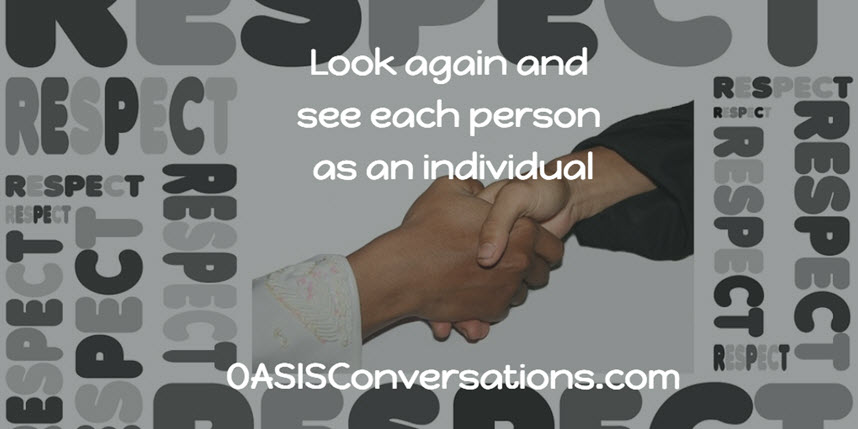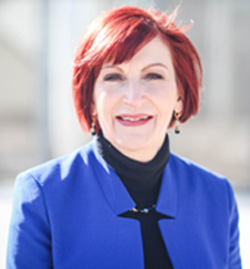[Excerpted from OASIS Conversations: Leading with an Open Mindset to Maximize Your Potential]
Comedian Rodney Dangerfield always complained, “I don’t get no respect.” We may laugh at this statement because we’d rather laugh than cry. We crave respect. However, the challenge is that we each have a different definition of respect.
For most Americans, respect is looking others in the eye when talking. Others, for example, some Asians and Africans, believe it is more respectful not to look elders or other highly respected people directly in the eyes. Some think it is respectful to use e-mail rather than call someone, so as not to disturb the person. Another feels disrespected when someone doesn’t call. We each tend to think that our idea of respect is the “right” way while another way is “wrong.”
This issue of respect is a funny thing. We each feel we know it when we see it. Universally, people agree that they want to be respected and that they share the belief that others should be respectful. Most report that they are respectful of others. We all feel we know what respect is, and yet, in countless conversations with people worldwide, perspectives and views differ about what specific behavior is respectful.
The Latin word “spect” means to see and “re” means again. Respect means to look again and see each person as an individual. Because of human nature, we initially may categorize someone as belonging to a certain group because of a certain feature such as his or her appearance. For example, we may label someone as a doctor or an administrator based on her clothes, or as young or old based on his hair color. Once we identify someone as an accountant, for instance, we then tend to believe we know what we need to know about the person. This is useful as a quick way of focusing. However, to be respectful, we need to slow down, take another look, and see a unique individual with many facets. It does not feel good to be categorized by a single dimension or even a few characteristics. For example, I don’t want people to see me just as a consultant or an author. Also, I am not like other women, mothers, or people my age. I want to be seen and related to as a unique individual.
When we feel respected and appreciated for who we are, we have more energy and enthusiasm to bring to a workplace, school, community, or family. When we don’t feel respected, our energy and attention is shifted to protecting ourselves. When we feel respected, we have more energy to respect and value others. When managers feel respected, they have energy to respect staff members who pass that energy on to clients and customers. This ripple effect has been demonstrated in organizations and communities and documented by research.
You may want to think of relationships where you do not feel respected and address those situations. The OASIS Moves will support you in having an effective conversation that results in agreement about what is respectful. In addition, the conversation itself will be perceived as respectful.

